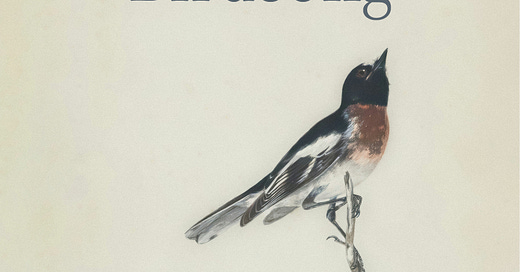Below are two poems by Mississippi poet Kendall Dunkelberg, whose Rooted interview was published earlier this week. “Possum Town” was part of Kendall’s second collection, Time Capsules, and “Beso con Lengua” is included in his forthcoming collection, Tree Fall with Birdsong. You can see Kendall at an upcoming reading at Friendly City Books in Columbus on June 5 or at Lemuria Books in Jackson on July 24.
Possum Town I really must claim this place more fully now I have lived here six years and in the past year gotten married, bought a house, begot a child. With each new planting— oak leaf hydrangea, jasmine, and tea olive in the yard; the rooms painted and remodeled in the house; the baby growing in the womb—despite all my misgivings, I set deeper roots into this soil. One morning, walking the dog, to the river, I encounter a dead possum on the side of the road, and a little further on, a badger, whose white buck teeth grinned at me a few days before I found this possum’s bloody smile, which reminds me now of Spirus Roach, whose nose, in local legend, caused the Indians to dub the settlement Possum Town, though the locals would later change the name to Columbus as they changed nearly all the named streets to anonymous numbers in all four directions, much to the confusion of spring tourists who come for a taste of the Old South but can’t tell Third Street from Third Avenue North or South. In this town history is everywhere yet leads nowhere; it has been whitewashed and spoon fed in October parades and April Pilgrimage Balls. But Mr. Possum’s beady eyes and proud nose remind me there is more to this place than its cleaned-up exterior. The possum and badger lived along the banks of the Tombigbee long before this town’s namesake claimed to discover this half of the world, long before the Choctaw migrated here or were force- marched on to Oklahoma, and long before the civil war that marks the end of history in all the local brochures. The land itself bears the scars of our civilization. Its history lives on in place names like Burns’ Bottoms, a low, swampy area where freed slaves once settled. Though not on any map, these names are still used, making this town not so different from any other in America where the real past has been replaced with a plastic present of Walmarts, McDonalds, Expresslubes and a hundred other chains that dot the main drag and cause this town to look, smell, and taste like any other. Yet scratch the surface, and the past bleeds black and white, Chochtaw, Chinese, and Mexican, unrest and culture, like anywhere else in American where our contradictions breed discord and complexity. Beso con Lengua Back when I lived in Chicago and still ate meat, my roommates and I loved to go to taquerias, where you could get real barrio food, not the Americanized fare that passes for Mexican in Mississippi. Yet my roommates never dared to try my favorite, tacos con lengua, a cross-cultural glossolalia wrapped in tortilla. Tongue wasn’t so foreign to me. My mother grew up eating it on the farm and passed it on to us, buying gigantic beef tongues, studding them with cloves and boiling them in her biggest stock pot. We loved to eat it hot with horseradish or cold in a sandwich, the sensation of the cow’s big, tender taste buds on our own was our favorite part, a culinary french kiss long before we became aware of the opposite sex. Still, now that I’ve moved to the South, I’m glad I’ve become a vegetarian. I don’t have to draw the line at chitlins: somehow, intestine on intestine doesn’t have quite the allure of tongue touching tongue. And I really have no desire to suck the flesh from between the toes of a pig, pickled or otherwise. Yet I have to admire the honesty of using every part of the animal you eat, in the way that as a boy I admired the idea of the Get Smart Sandwich at the drive-in in Belle Plaine, Iowa, but never could quite stomach the reality of scrambled brains on a sesame bun.





My grandfather was a brain eater in South Carolina - and of course there's the awful liver. I too am now a vegetarian, having left the offal behind! Thank you for these two wonderful poems.